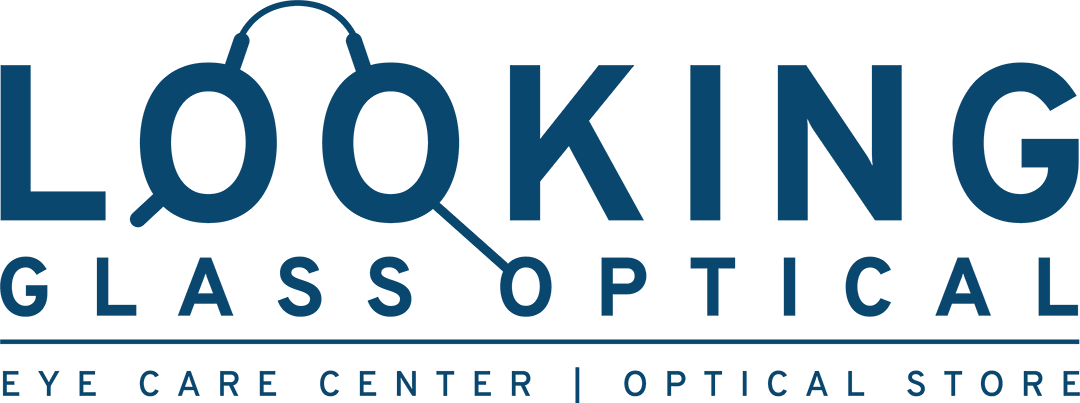LASIK Surgery: Is It Right for You? Exploring Vision Correction Options
For many, the prospect of LASIK surgery represents a liberating journey toward freedom from glasses and contacts. Yet, amidst the excitement, it’s vital to acknowledge that LASIK isn’t a universal remedy. Choosing whether LASIK aligns with your needs demands thoughtful consideration. This includes various factors, spanning from the condition of your eyes to your lifestyle preferences.
At Looking Glass Optical, we know education is key to making the best decisions for your eye health. So, let’s unpack the perks, perils, and alternative avenues to LASIK surgery.
Understanding LASIK Surgery
At its core, LASIK, an abbreviation for Laser-Assisted in Situ Keratomileusis, stands as a cornerstone of modern refractive surgery. It helps correct prevalent vision issues such as nearsightedness, farsightedness, and astigmatism. The procedure entails delicately reshaping the cornea through precise laser techniques. LASIK helps facilitate the accurate focusing of light onto the retina, thereby refining vision clarity.
The Brightside of LASIK
LASIK eye surgery has become a revolutionary procedure for correcting vision problems. Here are some key benefits of LASIK surgery:
- Improved Vision: LASIK surgery can significantly enhance your vision, often leading to 20/20 vision or better.
- Quick Results: Most patients experience noticeable improvements in their vision shortly after the procedure. Many see full results within a few days.
- Reduced Dependence on Glasses and Contacts: Many individuals rely less on corrective eyewear post-LASIK, enjoying greater freedom and convenience in their daily lives.
- Long-term Solution: For most patients, LASIK offers a permanent correction of vision problems, eliminating the need for ongoing interventions.
Assessing Eligibility
While LASIK offers numerous benefits, only some are ideal candidates for the procedure. Factors such as age, overall eye health, and specific medical conditions must be carefully evaluated by an experienced eye doctor. Some common considerations include:
- Age: Candidates should typically be over 18 years old, with stable vision for at least a year.
- Eye Health: Certain conditions like severe dry eye, corneal diseases, and cataracts may disqualify individuals from undergoing LASIK.
- Pregnancy: Pregnant or nursing women are generally advised to wait before considering LASIK, as hormonal changes can affect vision stability.
- Prescription Stability: Vision prescriptions should remain relatively stable for at least a year before undergoing LASIK.
Risks and Complications
While LASIK is considered safe for most patients, as with any surgical procedure, there are potential risks and complications. These may include:
- Dry Eyes: Some patients may experience temporary or persistent dryness following LASIK, which can usually be managed with lubricating eye drops.
- Glare and Halos: While uncommon, some individuals may notice glare, halos, or difficulty with night vision post-surgery, though these effects diminish over time.
- Undercorrection or Overcorrection: In rare cases, the desired vision correction may not be fully achieved, necessitating further enhancements or the continued use of glasses or contacts.
- Flap Complications: LASIK involves creating a thin corneal flap, which carries a slight risk of complications such as flap dislocation or inflammation.
Exploring Alternatives
For those who are not suitable candidates for LASIK or prefer non-surgical options, several alternatives exist, including:
- PRK (Photorefractive Keratectomy): Like LASIK without creating a corneal flap, PRK may be a better option for individuals with thin corneas or certain corneal irregularities.
- Implantable Lenses: These implants, also known as phakic intraocular lenses (IOLs), help correct refractive errors, providing an alternative to LASIK for individuals with higher prescriptions.
- Orthokeratology (Ortho-K): This non-surgical technique involves wearing specially designed contact lenses overnight to reshape the cornea temporarily, providing clear vision during the day.
LASIK surgery has revolutionized vision correction, offering many individuals a life-changing opportunity to enjoy clearer vision and greater freedom from glasses and contacts. However, it’s crucial to consider the decision carefully, weighing the potential benefits against the risks and exploring alternative options when necessary. Consulting with a qualified eye care professional is essential in determining whether LASIK is the right choice, ensuring the best possible outcome for your vision and overall eye health.
See the World in High Definition: Book Your Eye Exam at Looking Glass Optical Today!
Unlock a crystal-clear vision experience with the latest optical technology and personalized eye care services at Looking Glass Optical. Don’t let blurry vision hold you back any longer. Click here to schedule your comprehensive eye exam and discover the perfect eyewear curated just for you or alternatives like LASIK. Embrace clarity, style, and innovation. Your journey to ideal vision starts with us!
Share
